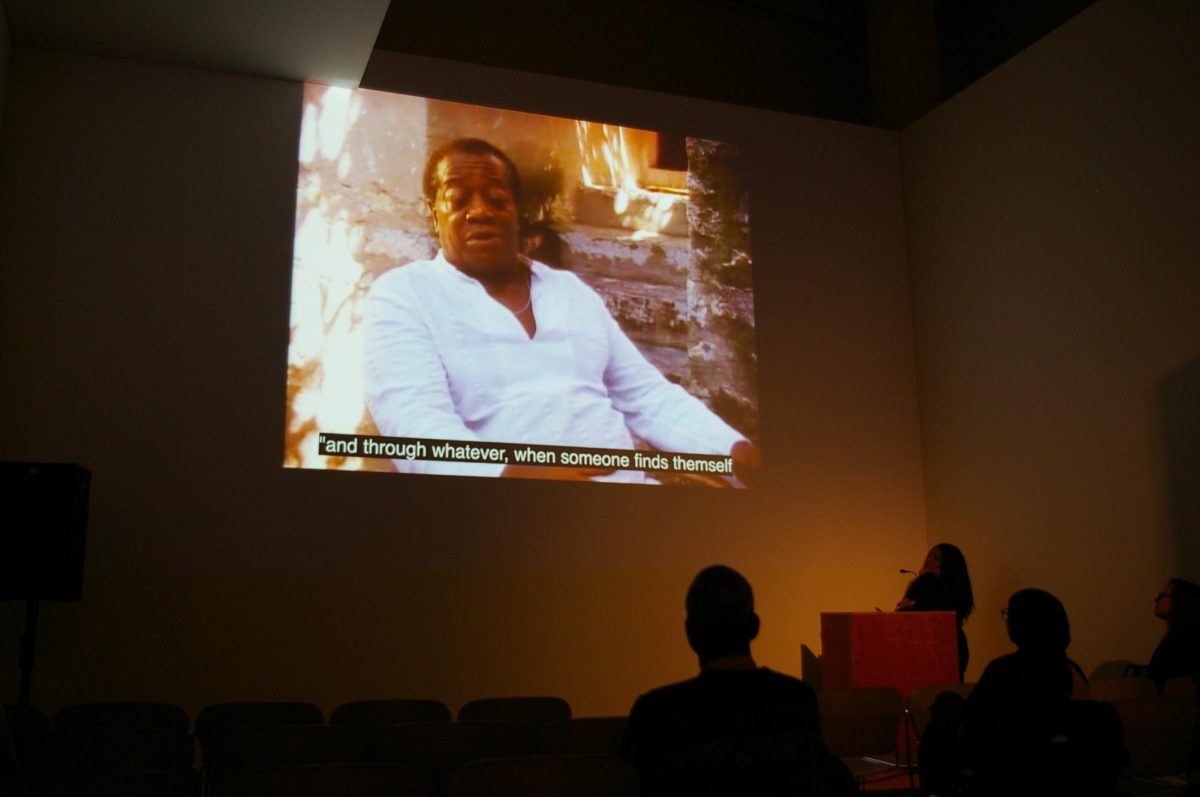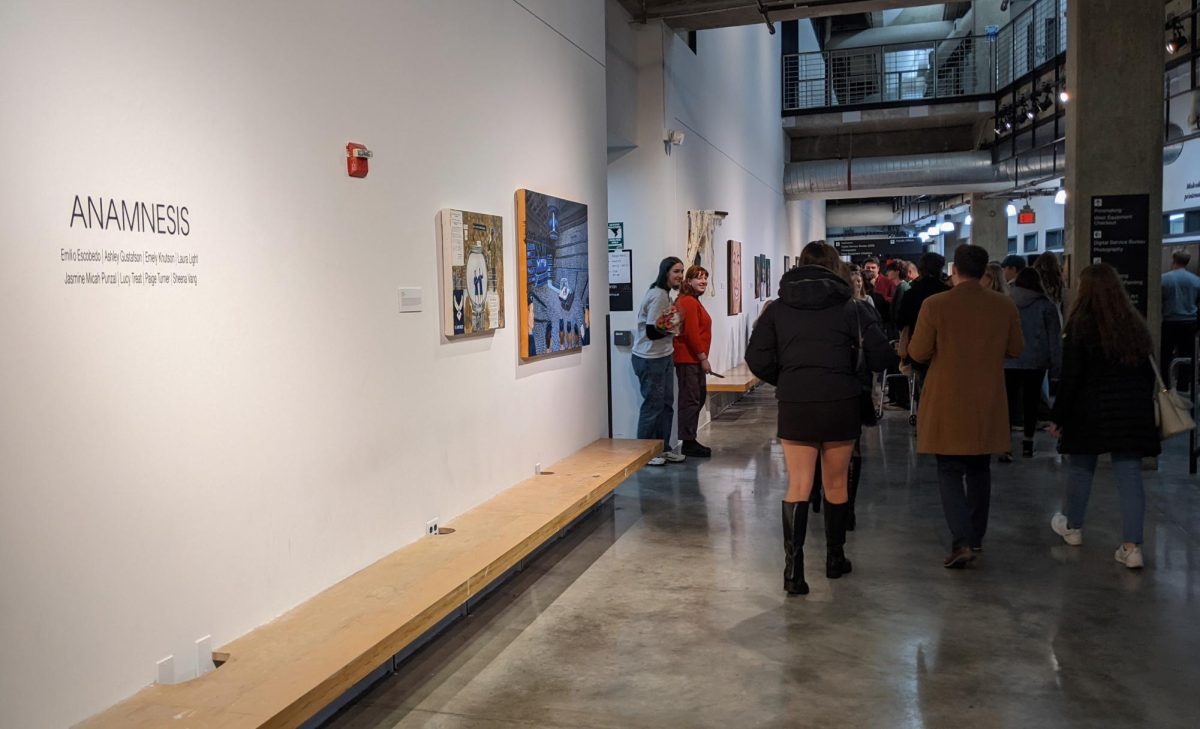The Weisman Art Museum screened the 1989 documentary “James Baldwin: The Price of the Ticket” from Feb. 21-28 in their Target Studio Gallery.
The film is a celebration of Baldwin, despite his public perception up until 1989 and in congruence with his contemporary legacy. In its broader efforts to challenge those narratives in American history, the Weisman recently hosted a series of events on the preeminent Black activist and author.
Megan Finch, assistant professor in the University of Minnesota English department, hosted an interactive talk on Wednesday evening about the documentary and Baldwin’s life and work. Both events are in conjunction with the Weisman’s exhibition “More Various, More Beautiful, & More Terrible,” a curation of the museum’s permanent collection based on Baldwin’s 1963 essay “A Talk to Teachers.” It has been on view in the Woodhouse Family Gallery since November 2022 and will be there until May 24, 2026.
According to Finch, director Karen Thorsen met Baldwin once shortly before his death to pitch the documentary as a cinéma vérité film, a type of filmmaking that seeks to avoid artificiality and present a truthful image of the subjects. One way this is done is through omitting a voice-over narrator, which is the case here.
The film is made up of interviews with Baldwin and his friends and colleagues and other archival footage of him, guiding the audience through the various eras of his life. It opens with evocative footage of Baldwin’s funeral at St. John the Divine in New York City, an imposing, grandiose Catholic ceremony backed with hastening African drums. The story of Baldwin’s life begins with his death, foreshadowing how his reputation would evolve in the following years.
The film was shown on a loop at the Weisman, so the viewer would be taking a gamble at what aspect of Baldwin’s life they would bear witness to, but an engaging story would meet them wherever they picked up.
However, at one point on Wednesday, the footage abruptly paused in the middle of the discussion of Baldwin’s 1964 play “Blues for Mister Charlie.” This interruption contradicts the purpose of the documentary as a full, complex picture of the writer.
Madeeha Lamoreaux, who attended Finch’s talk, said the documentary was hard to grasp when she watched it on her own. She said it was hard to understand the director’s artistic perspective through the film, but Finch’s commentary made it easier.
“Dr. Finch facilitated a conversation outside of a classroom space in a way that felt very similar to a classroom environment in the sense that it felt safe to come to that space without preconceptions, expertise or knowledge,” Lamoreaux said.
Attendees of the talk included Weisman staff like Lamoreaux, University students and community members.
One of those community members was Herman Milligan, a consultant and part-time manager of the Givens Foundation for African American Literature, as well as a University alumnus — the first Black person to receive a doctorate in sociology from the University, he said. He first read Baldwin for required reading as an undergraduate and continued following Baldwin’s works, saying he now owns 10 of his books.
“It wasn’t that the literary world was [Baldwin’s] best friend, but he managed to do well despite the fact that there were obstacles put in his place,” Milligan said.
According to Milligan, Finch’s talk showed how important it is for people to understand the complexity of Baldwin’s life.
Finch and “The Price of the Ticket” both addressed the tension between Baldwin the novelist and Baldwin the activist — one had a responsibility to his craft and creativity, the other to the world and the people around him, and his influence resides in the synthesis of the two.
“Any truly creative person wants to make meaningful change,” Milligan said.
Finch described herself to her audience as “a scholar who thinks about novels,” not usually the lives of novelists, nor Baldwin’s in particular. Her interest in the documentary and starting a conversation around it comes from her own interest in how the function of novels evolved with Baldwin’s legacy. After all, she said, his 1956 novel “Giovanni’s Room” underlines Baldwin’s contemporary influence as a Black queer voice.
Leading the conversation, Finch encouraged all thoughts and questions and gave thoughtful responses to each one. Like Lamoreaux said, the result was a safe, intimate and accessible learning space. As the Weisman continues to pursue challenging dominant white, Western narratives in museum spaces, providing platforms so communal conversations can take place is key.
Finch closed the talk by saying to the audience, “It was a pleasure to think with you.”
“James Baldwin: The Price of the Ticket” is available for streaming on pbs.org with a donation.








